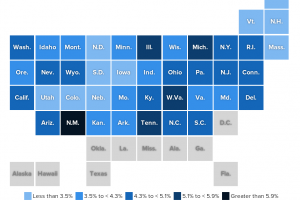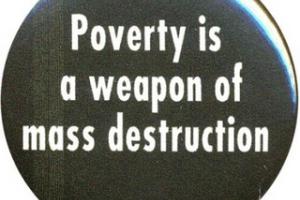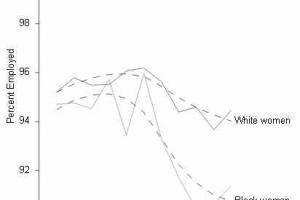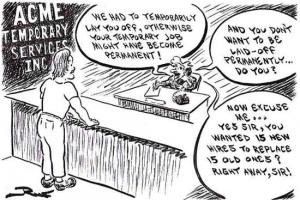10 Years after the Start of the Great Recession, Black and Asian Households Have Yet to Recover Lost Income
Economic Policy Institute
 The China-esqsue income for the general labor pool might not spark a backlash against the Chinese, Washington's favorite punching bag. Instead, it will favor future political backlashes against globalization and the corporations seen driving up inequality -- and driving down mobility -- because of it.
The China-esqsue income for the general labor pool might not spark a backlash against the Chinese, Washington's favorite punching bag. Instead, it will favor future political backlashes against globalization and the corporations seen driving up inequality -- and driving down mobility -- because of it.
 The African American unemployment rate is at or below its pre-recession level in 11 states: Arkansas, California, Illinois, Indiana, Michigan, Mississippi, New Jersey, New York, North Carolina, Ohio, and South Carolina. However, a return to pre-recession levels in these states is barely a recovery: in all of these states, black unemployment rates were above 8.0 percent before the recession.
The African American unemployment rate is at or below its pre-recession level in 11 states: Arkansas, California, Illinois, Indiana, Michigan, Mississippi, New Jersey, New York, North Carolina, Ohio, and South Carolina. However, a return to pre-recession levels in these states is barely a recovery: in all of these states, black unemployment rates were above 8.0 percent before the recession.
 New data shows no change in the poverty rate in most states for the past two years. Only two states have poverty rates below their 2007 level, before the state of the Great Recession. However, the data suggest that the lack of real income growth over the past decade and a half has been even more pronounced for households at the bottom of the income scale. Click below to see where your state stands (or doesn't).
New data shows no change in the poverty rate in most states for the past two years. Only two states have poverty rates below their 2007 level, before the state of the Great Recession. However, the data suggest that the lack of real income growth over the past decade and a half has been even more pronounced for households at the bottom of the income scale. Click below to see where your state stands (or doesn't).
 Historically, the public sector has served as an equalizing institution through the expansion of job opportunities for minority workers. This study examines whether the public sector continues to serve as an equalizing institution in the aftermath of the Great Recession. Results point to a post-recession double disadvantage for Black women: they are concentrated in a shrinking sector of the economy, and they are substantially more likely be without work.
Historically, the public sector has served as an equalizing institution through the expansion of job opportunities for minority workers. This study examines whether the public sector continues to serve as an equalizing institution in the aftermath of the Great Recession. Results point to a post-recession double disadvantage for Black women: they are concentrated in a shrinking sector of the economy, and they are substantially more likely be without work.
 "Workers increasingly serve businesses that do not officially 'employ' the worker — a distinction that hampers organizing, erodes labor standards and dilutes accountability," said Catherine Ruckelshaus, general counsel for the National Employment Law Project, which advocates on behalf of low-wage workers. A recent Federal Reserve study showed that nearly 7.5 million people who are working part time — contract workers included — would rather have full-time jobs.
"Workers increasingly serve businesses that do not officially 'employ' the worker — a distinction that hampers organizing, erodes labor standards and dilutes accountability," said Catherine Ruckelshaus, general counsel for the National Employment Law Project, which advocates on behalf of low-wage workers. A recent Federal Reserve study showed that nearly 7.5 million people who are working part time — contract workers included — would rather have full-time jobs.
Spread the word